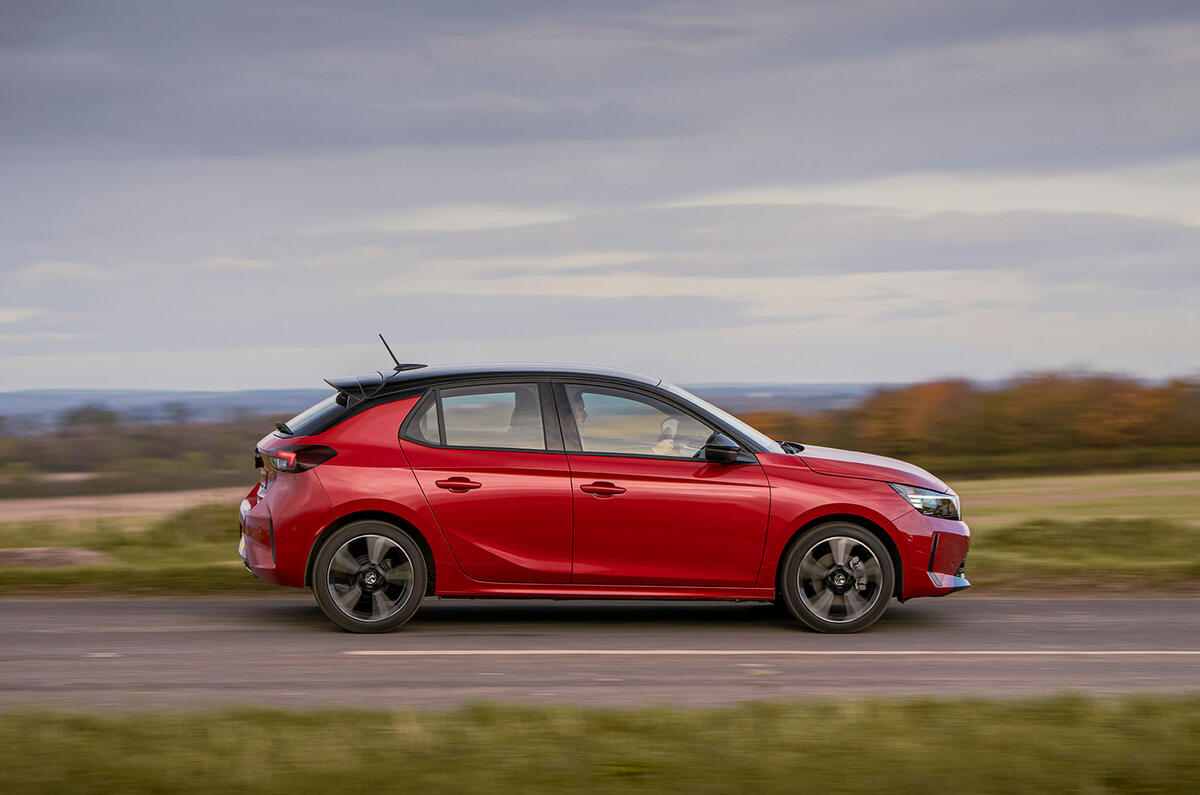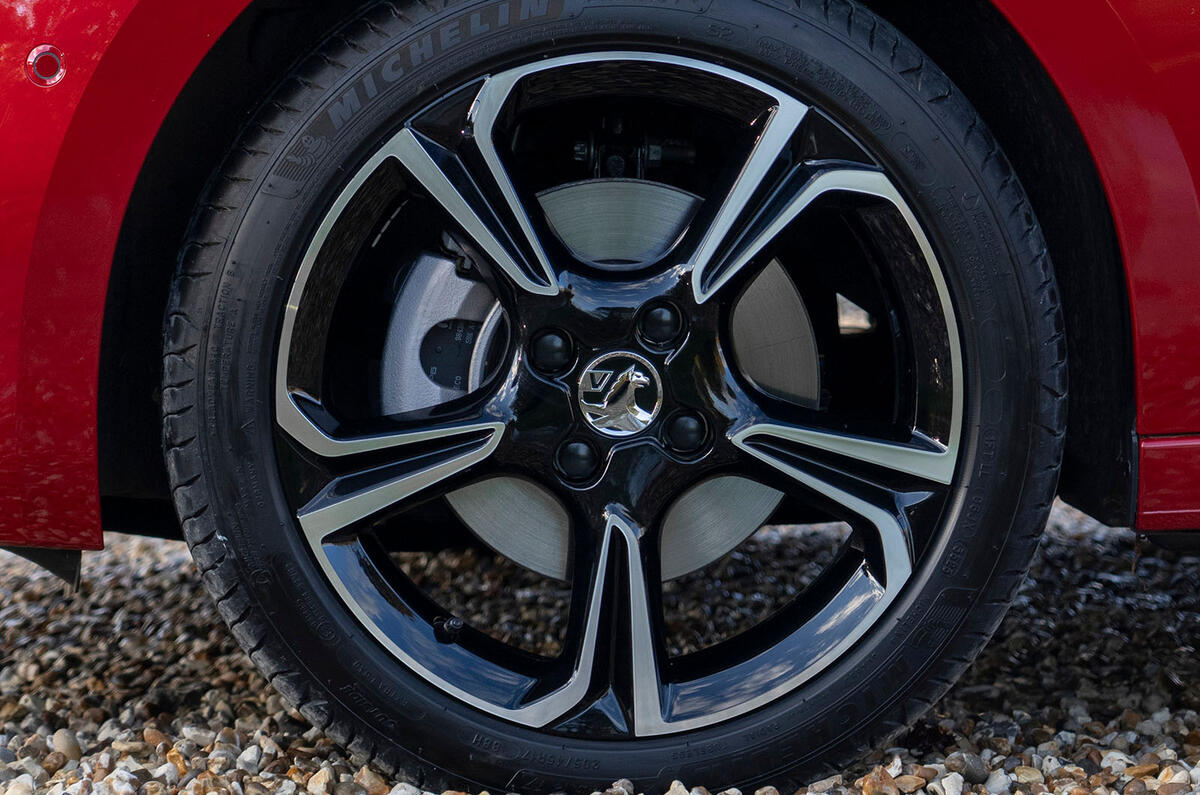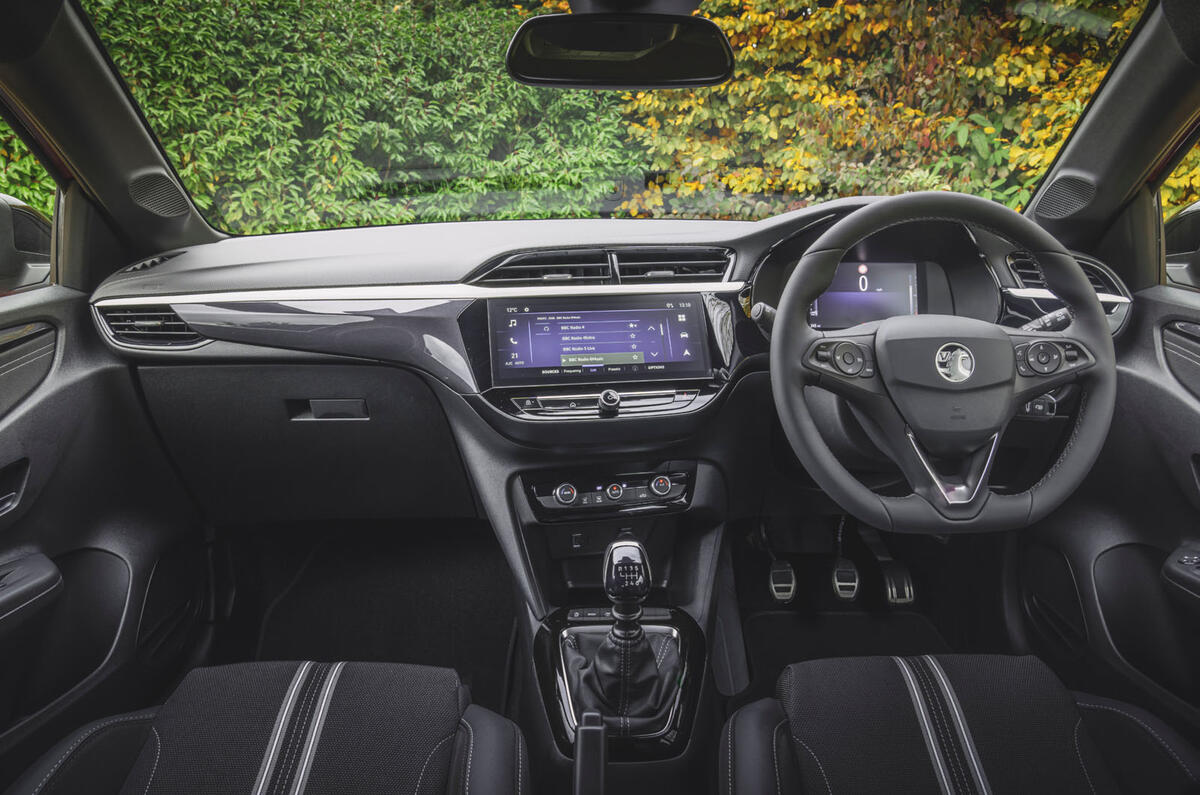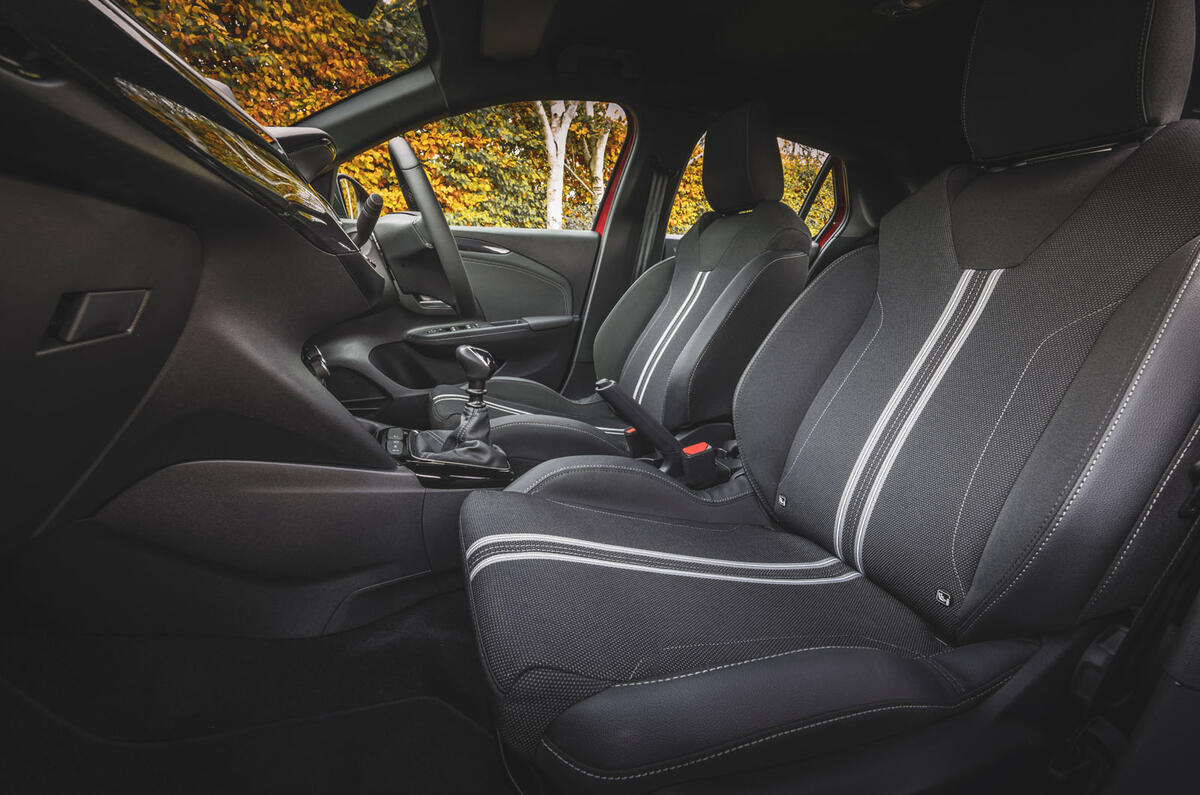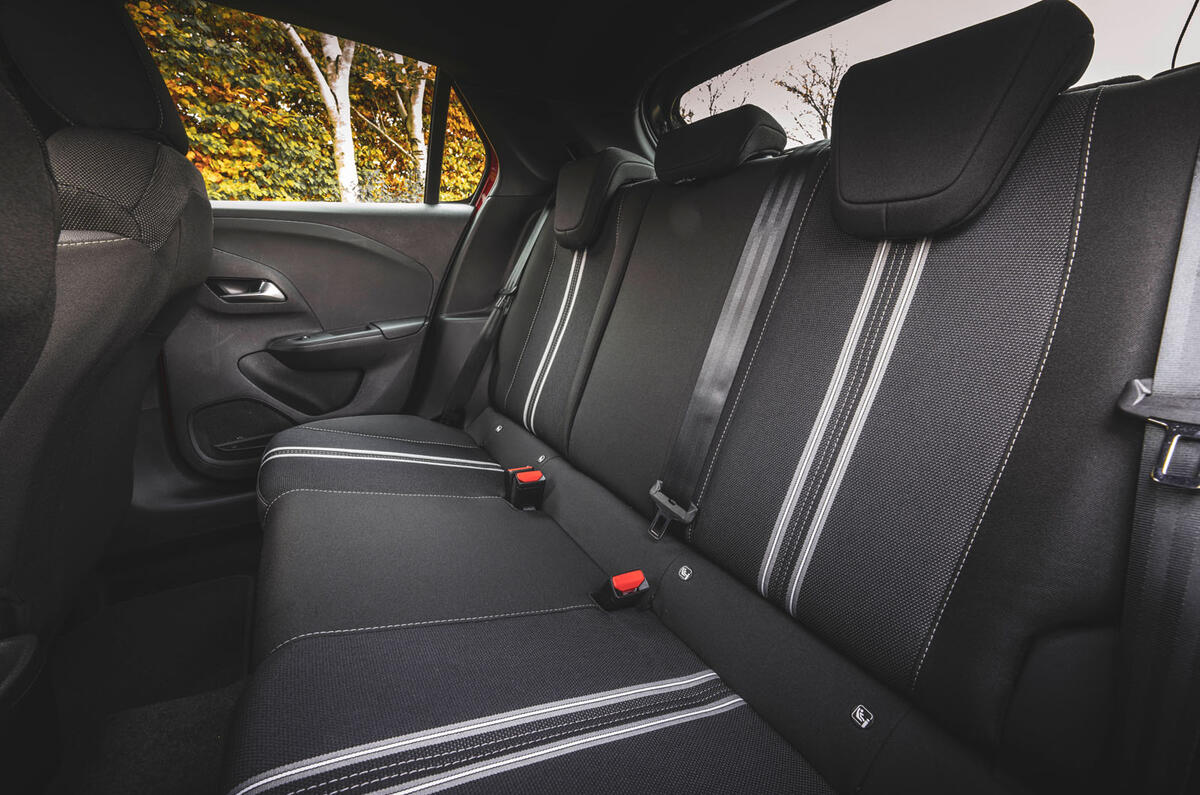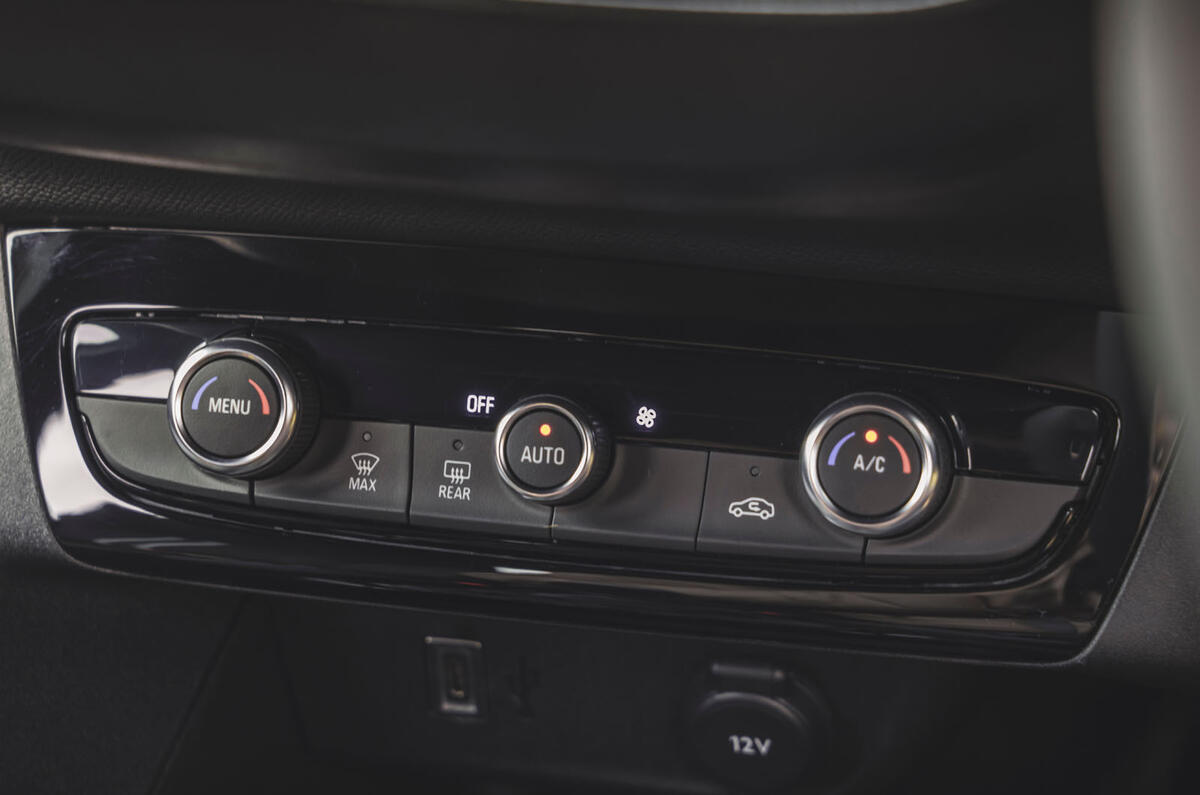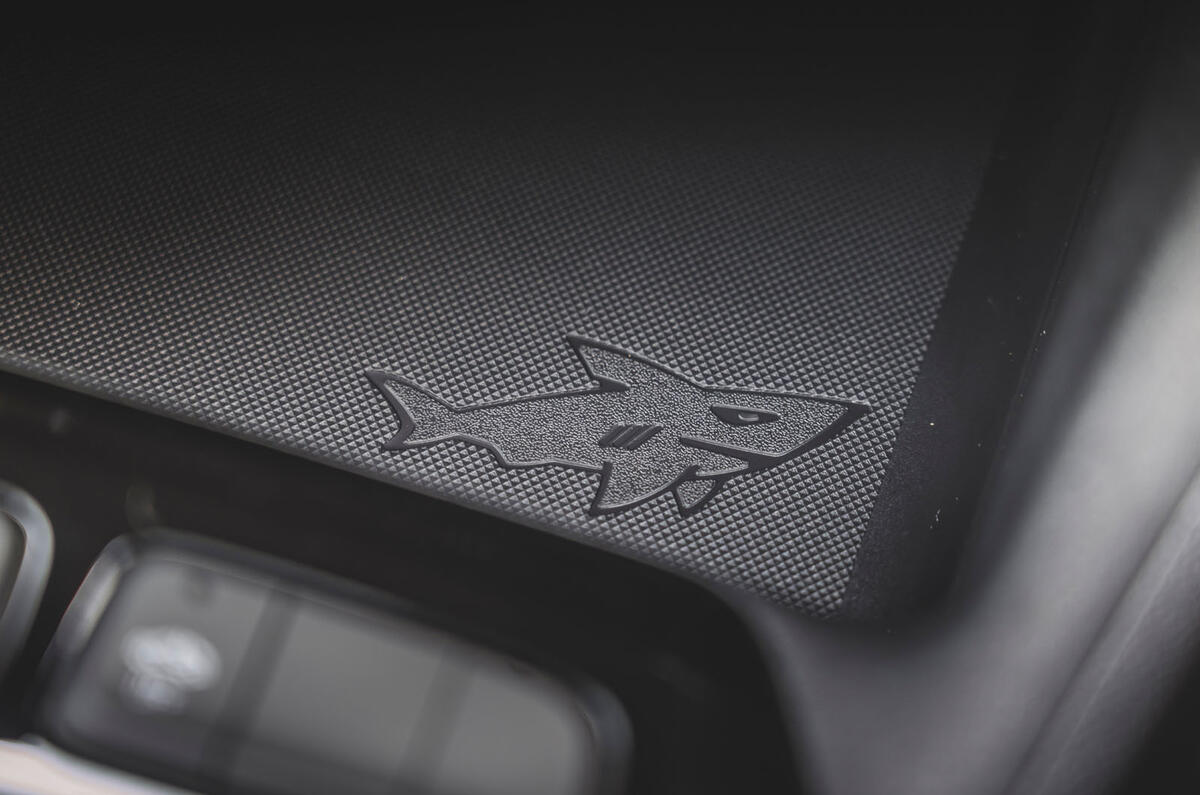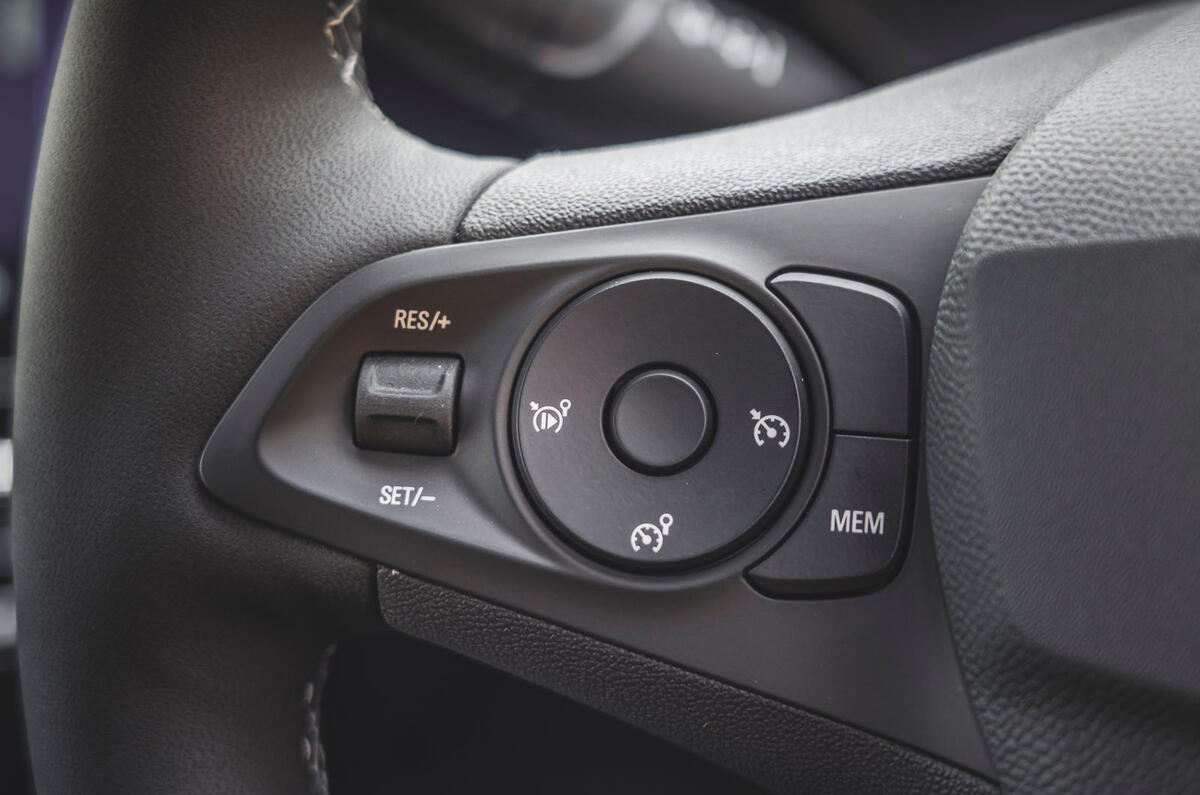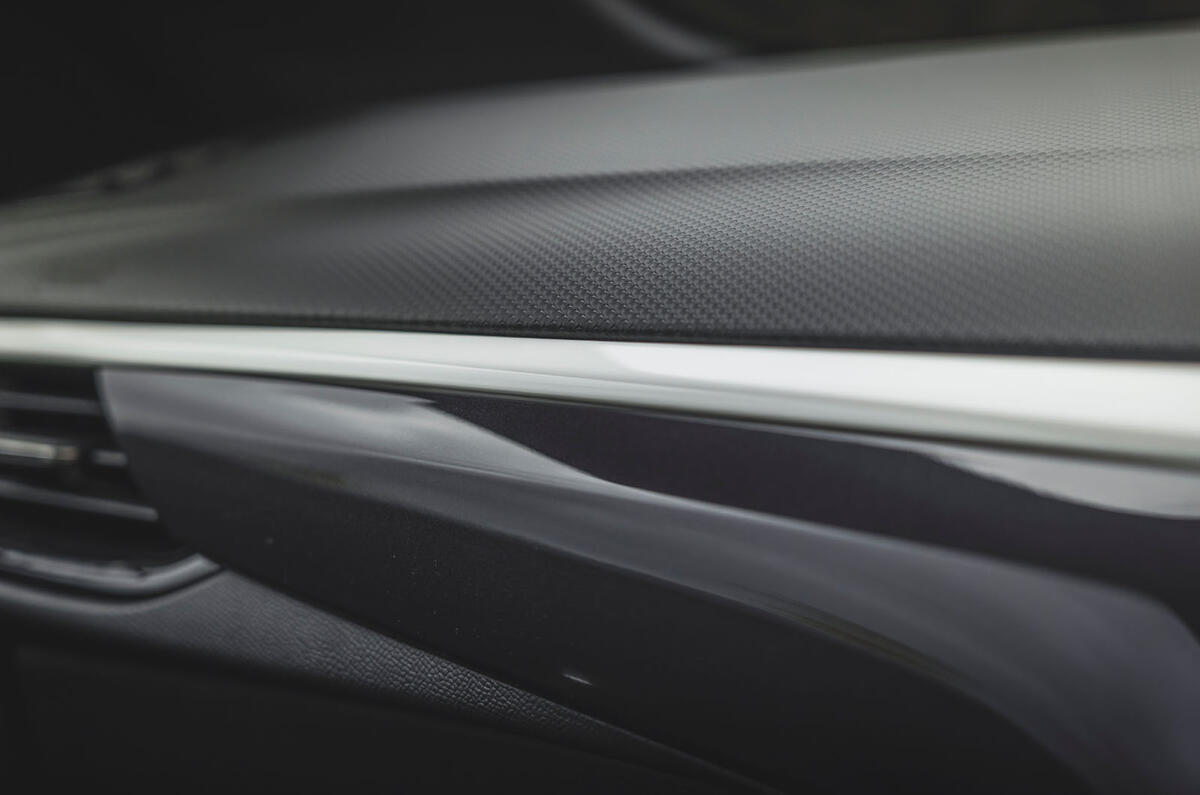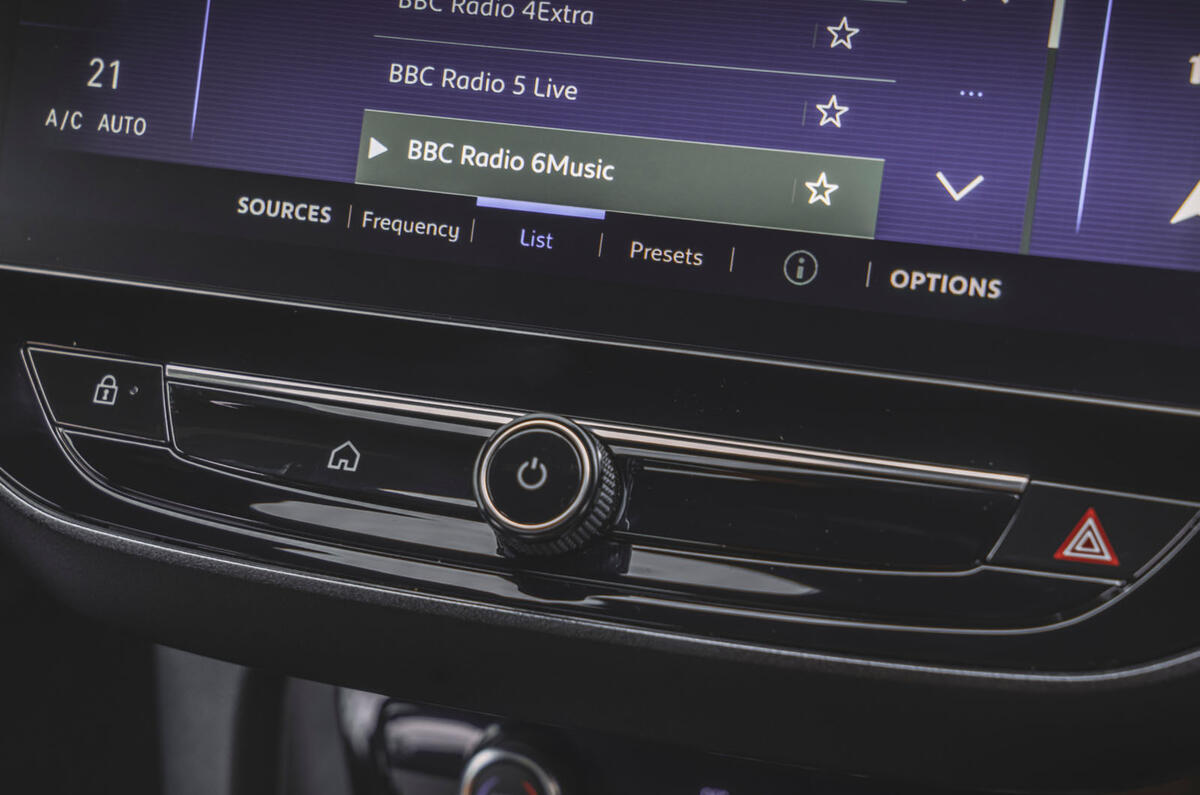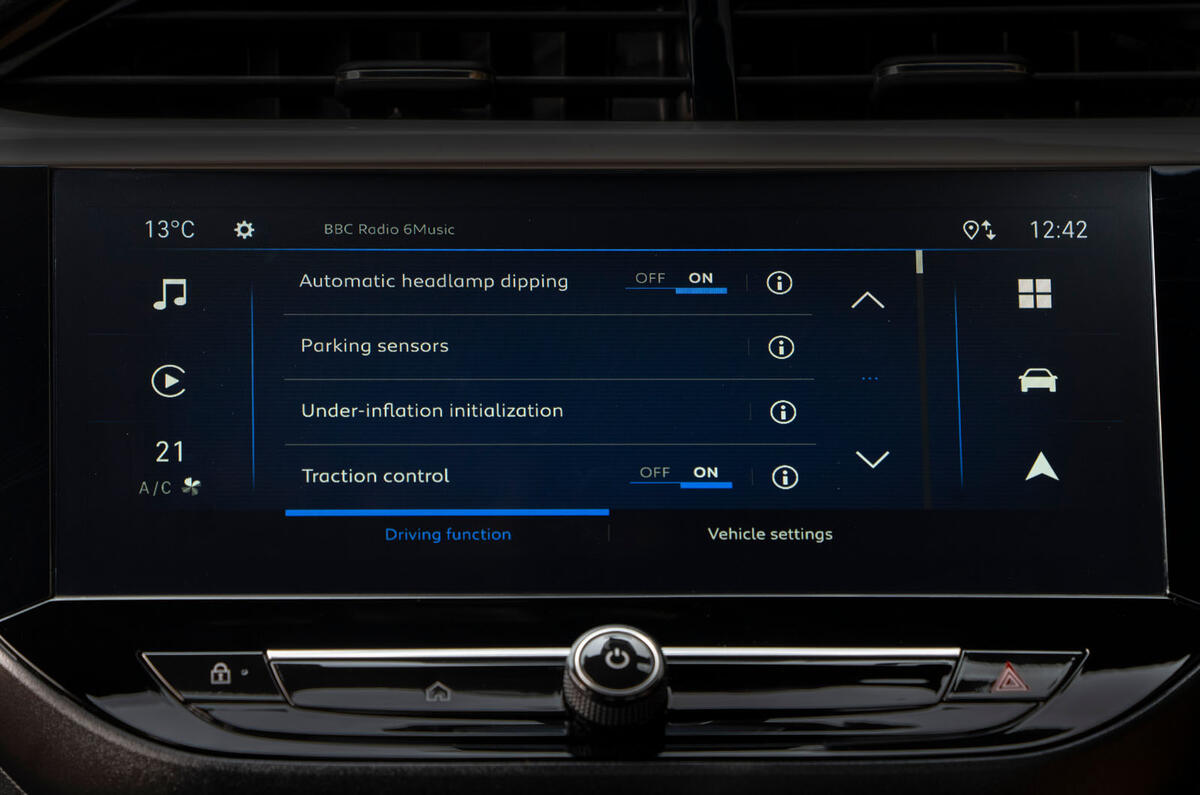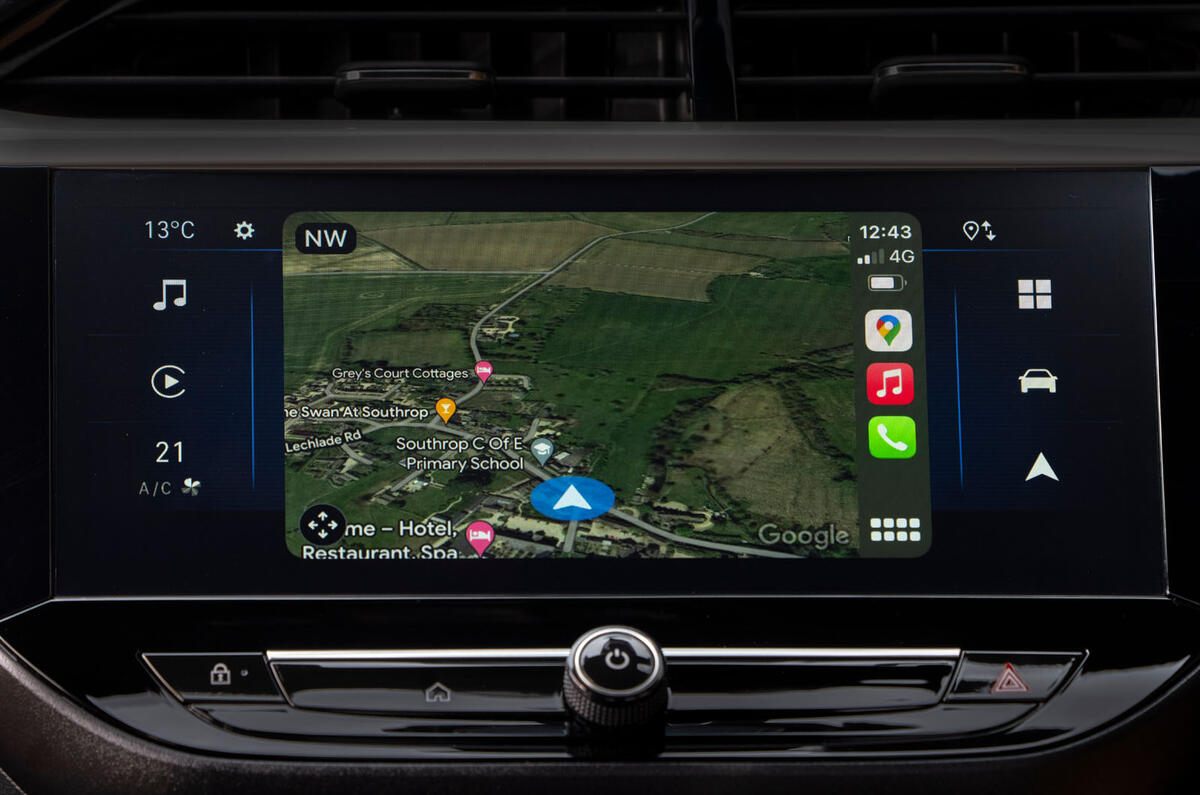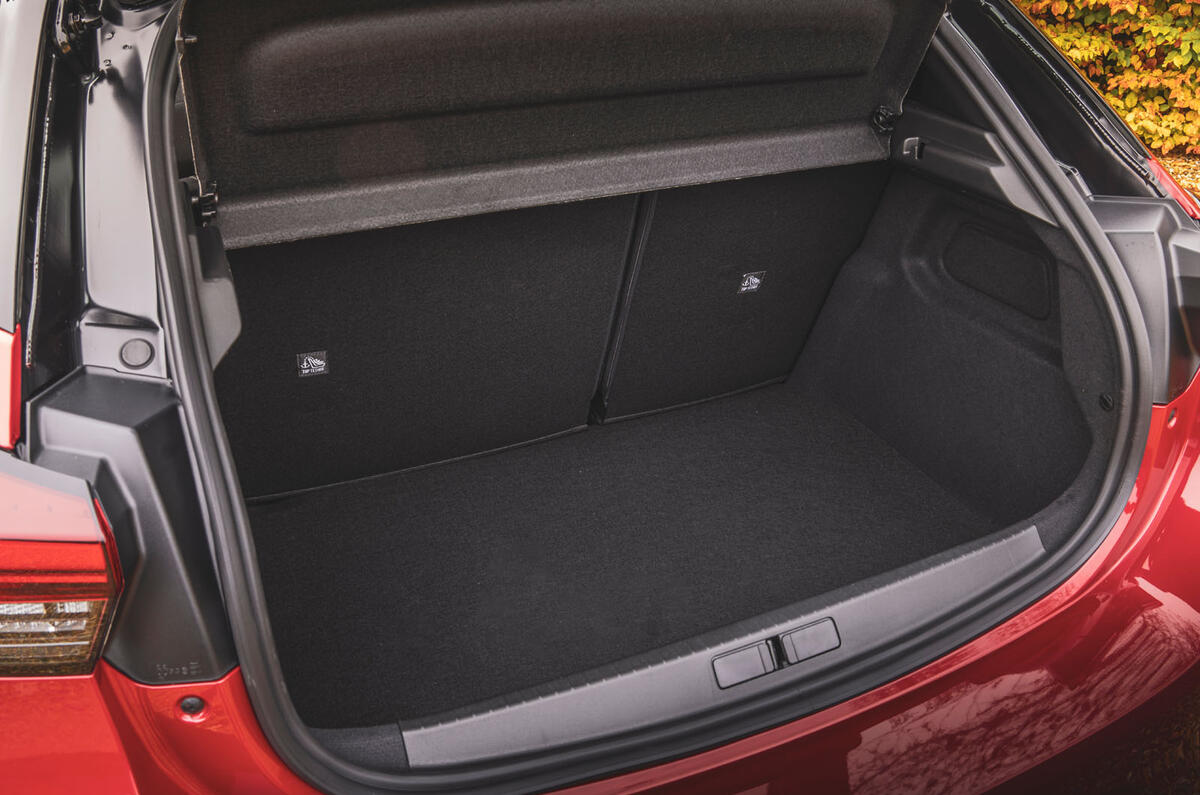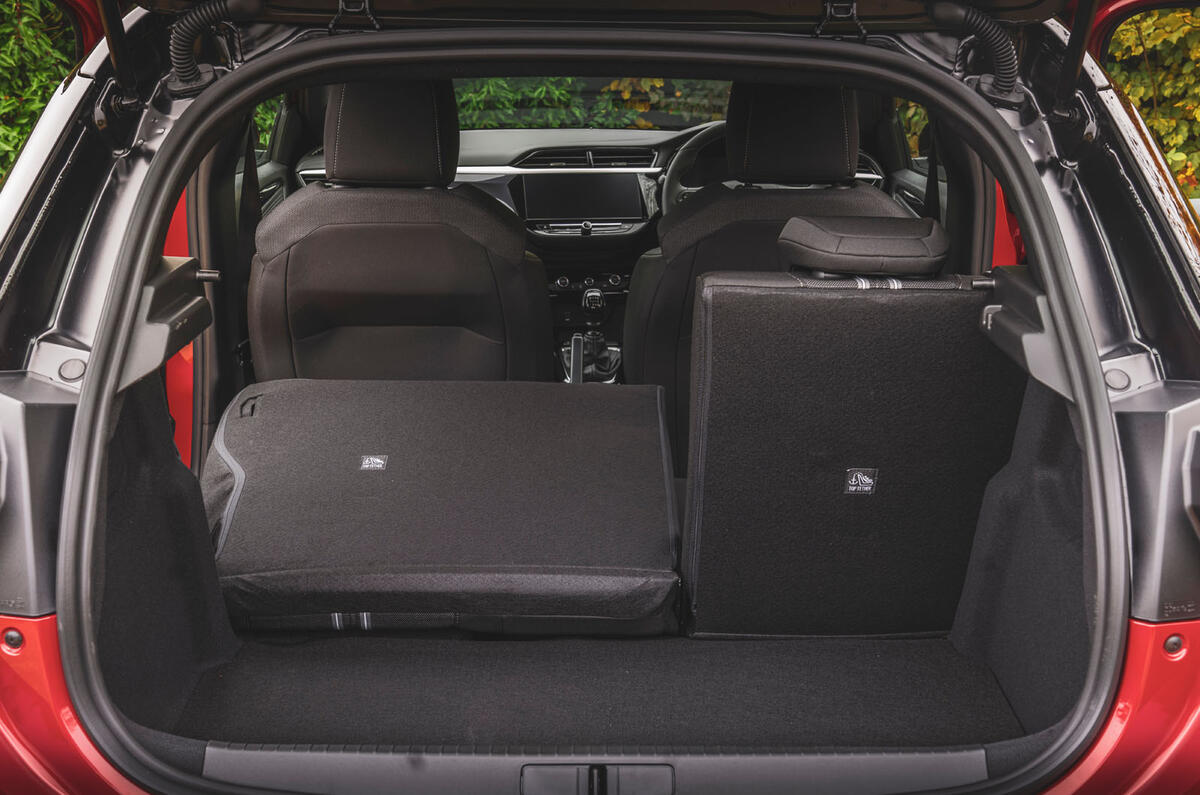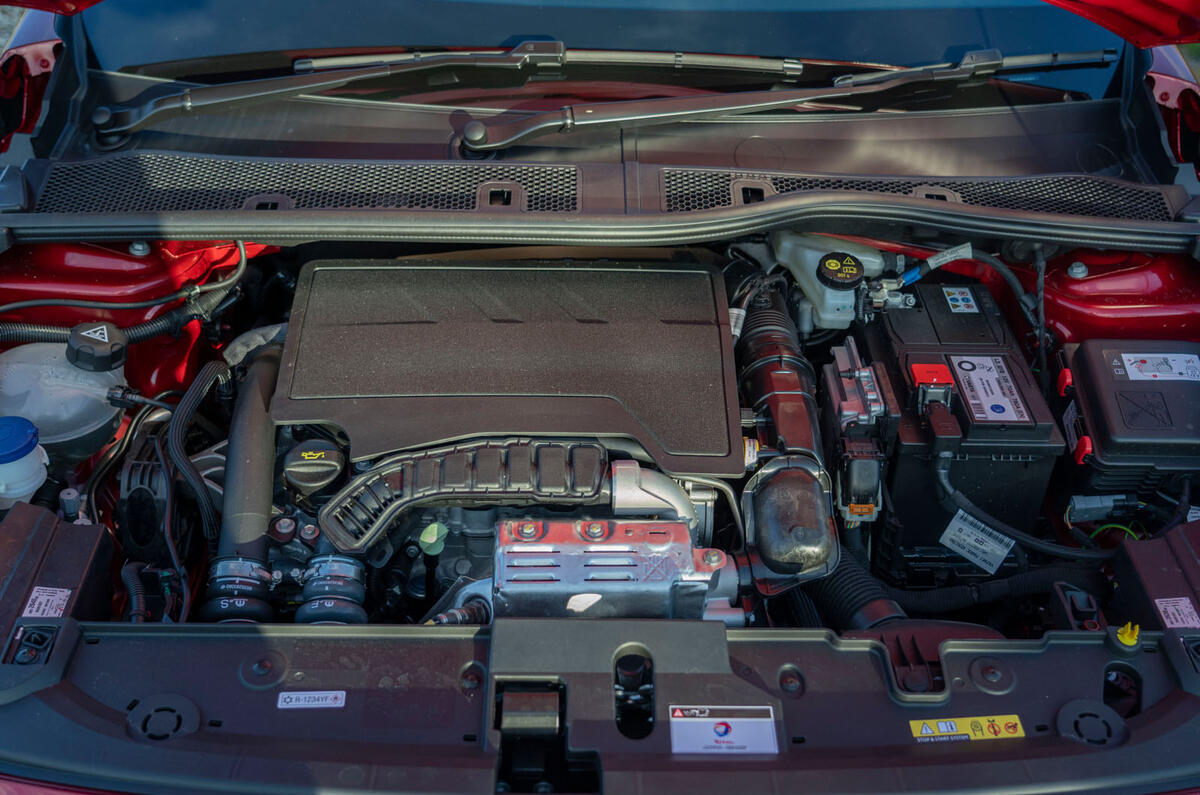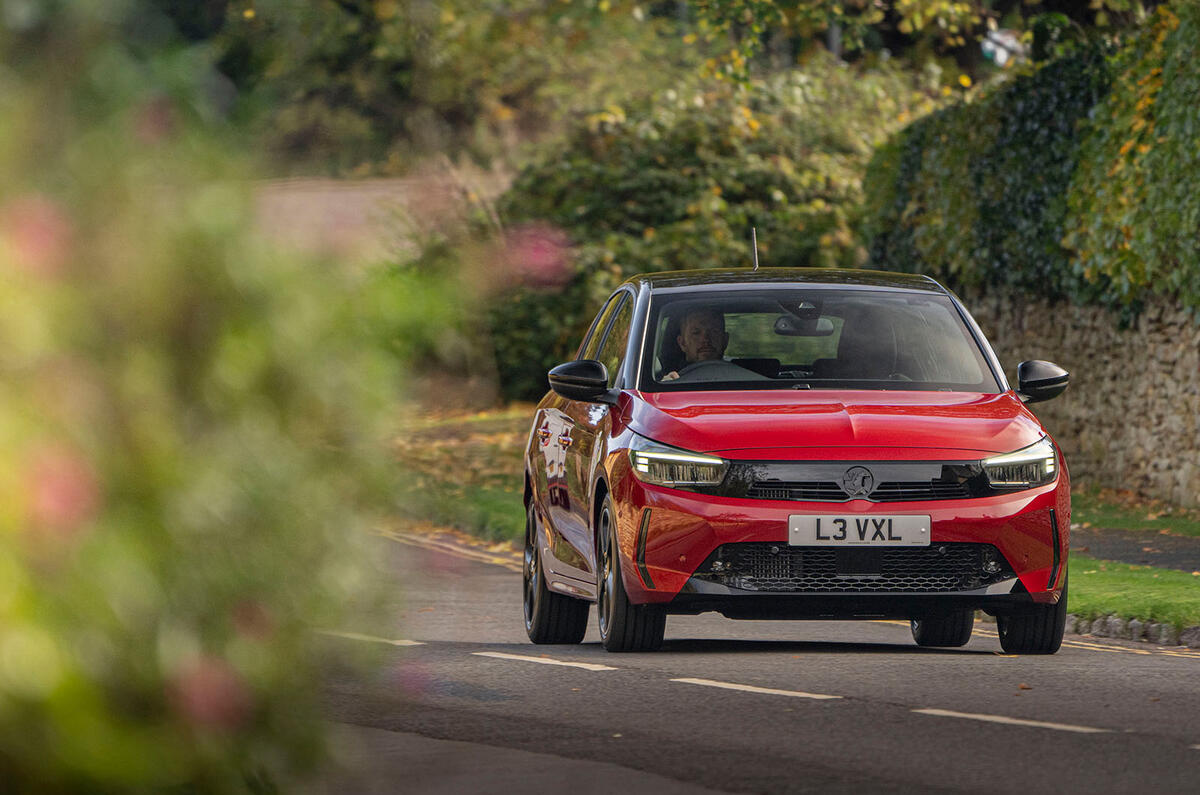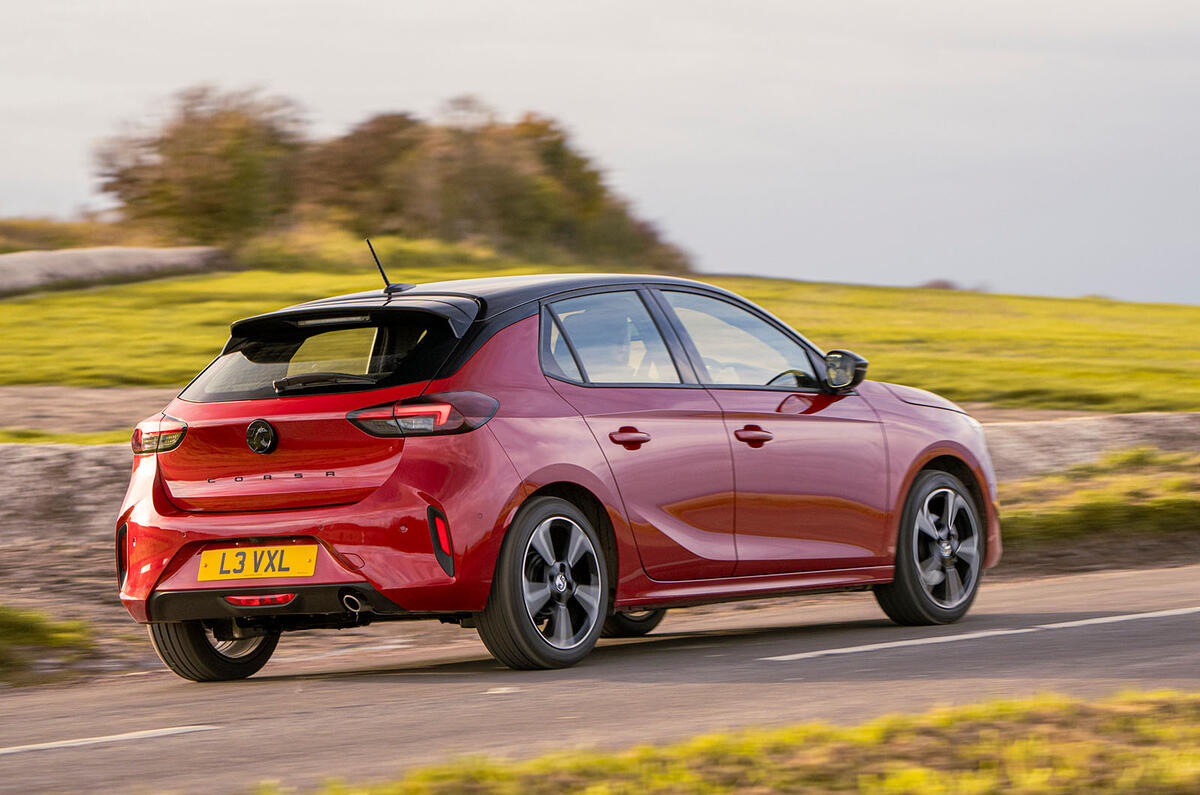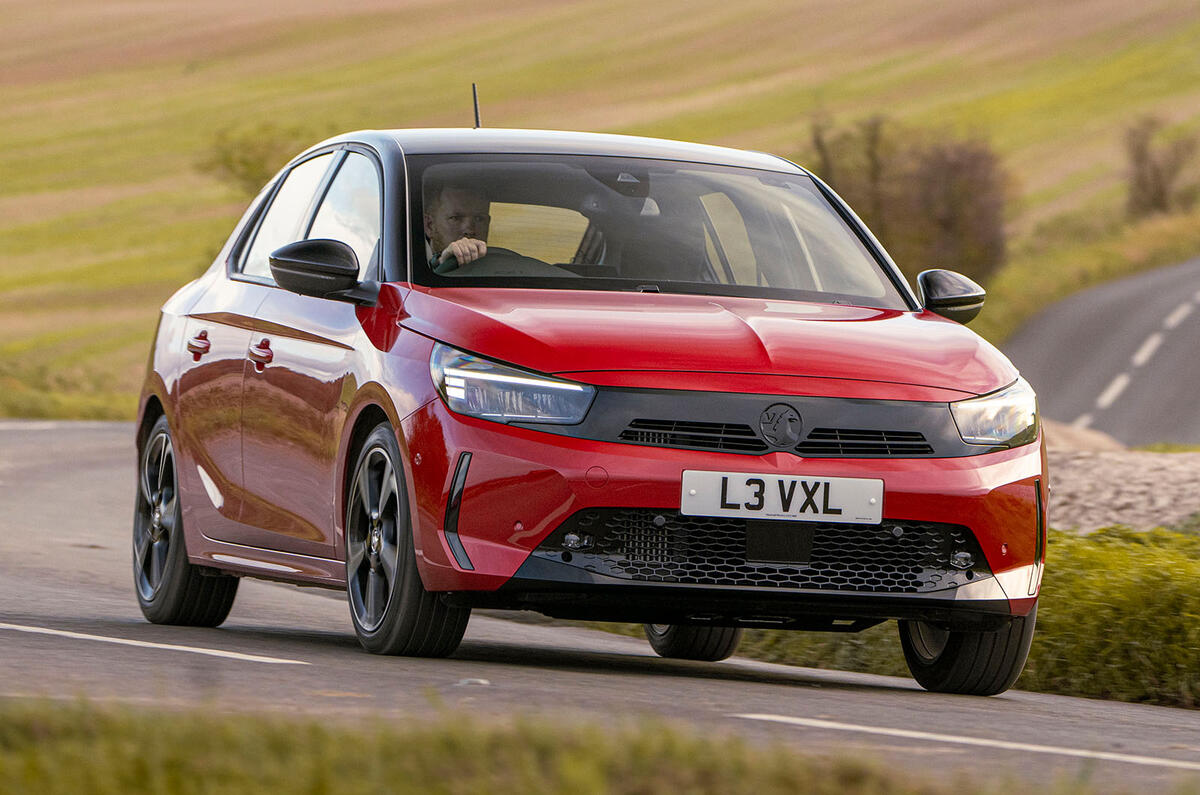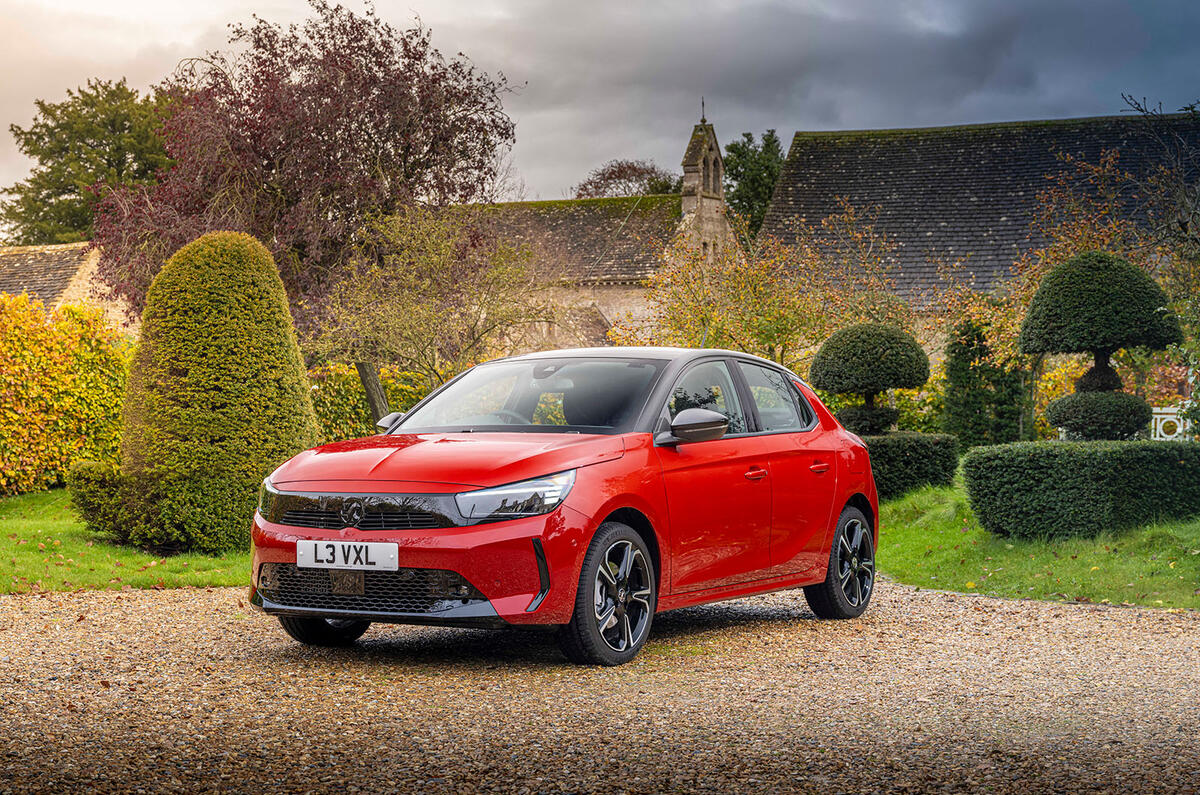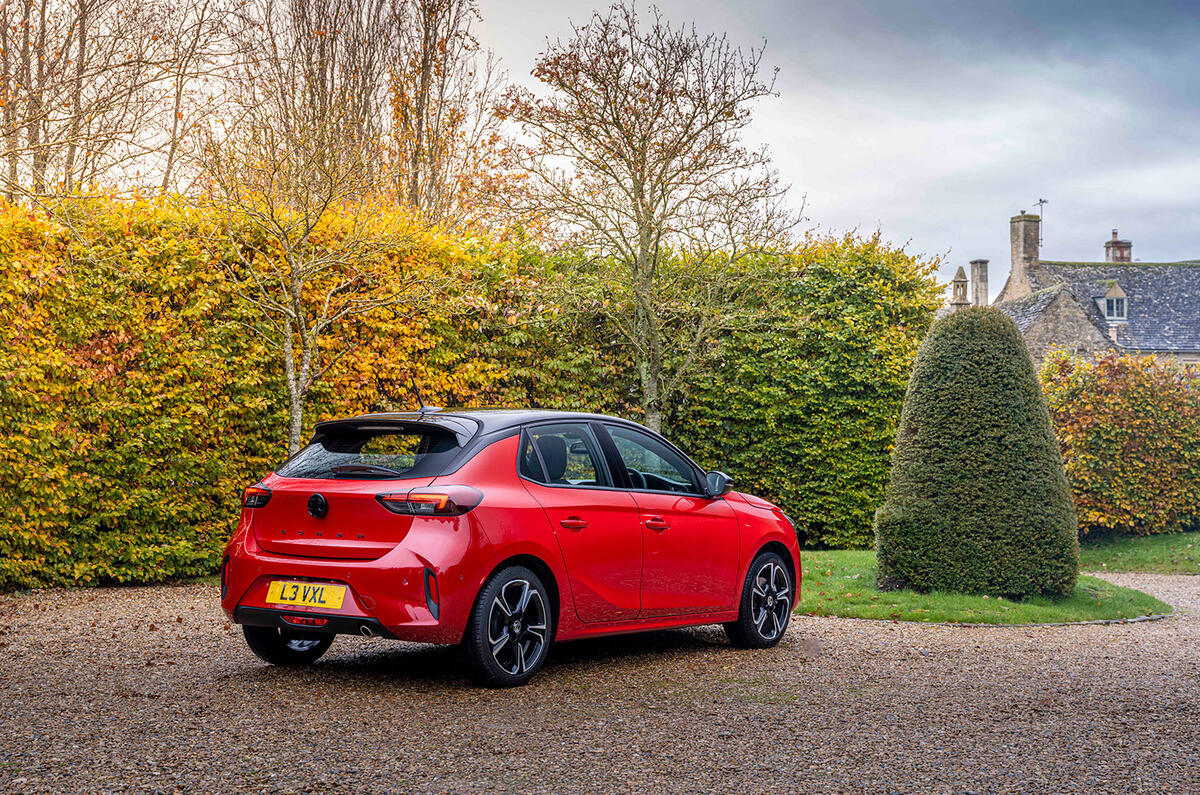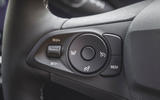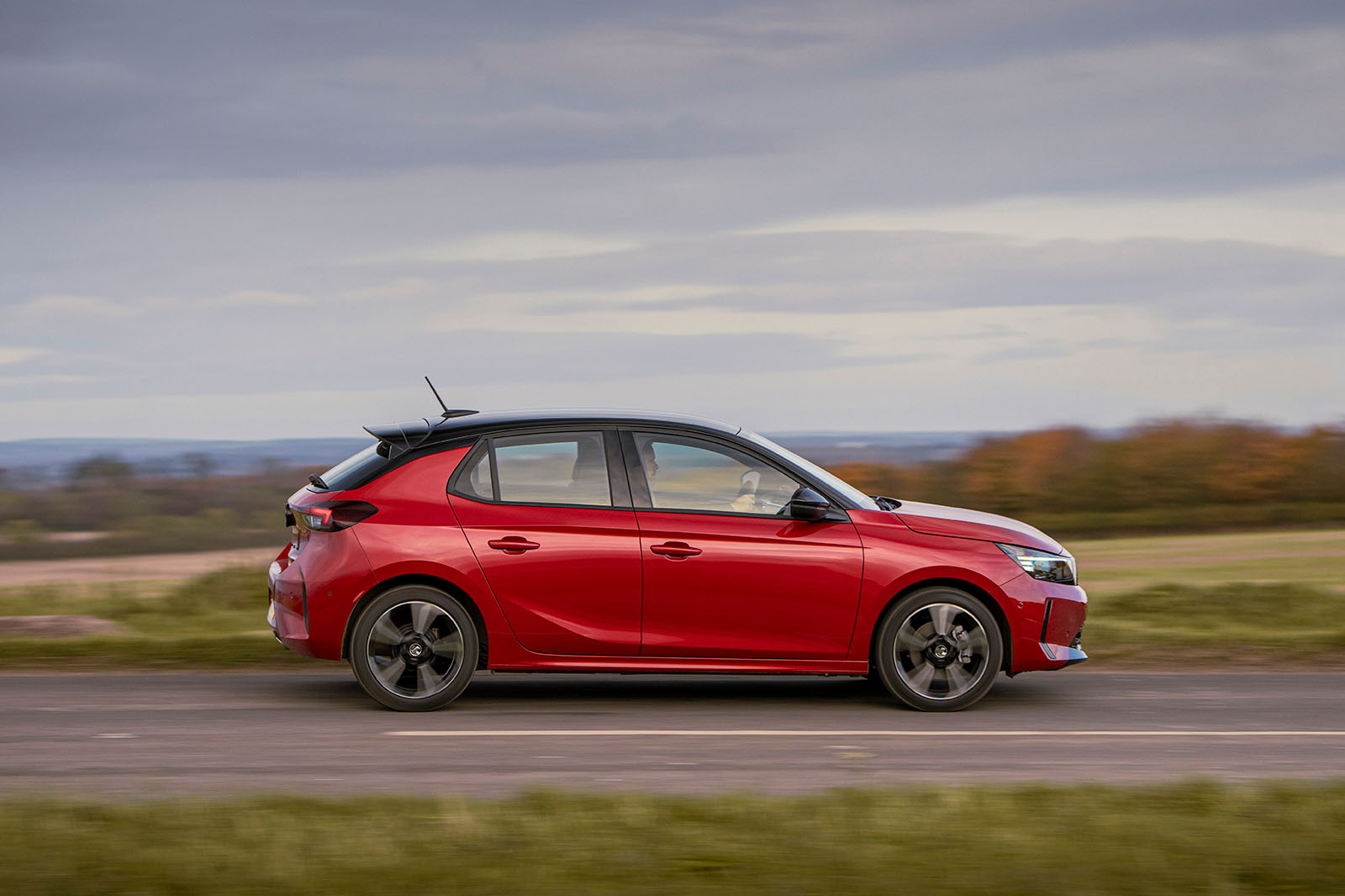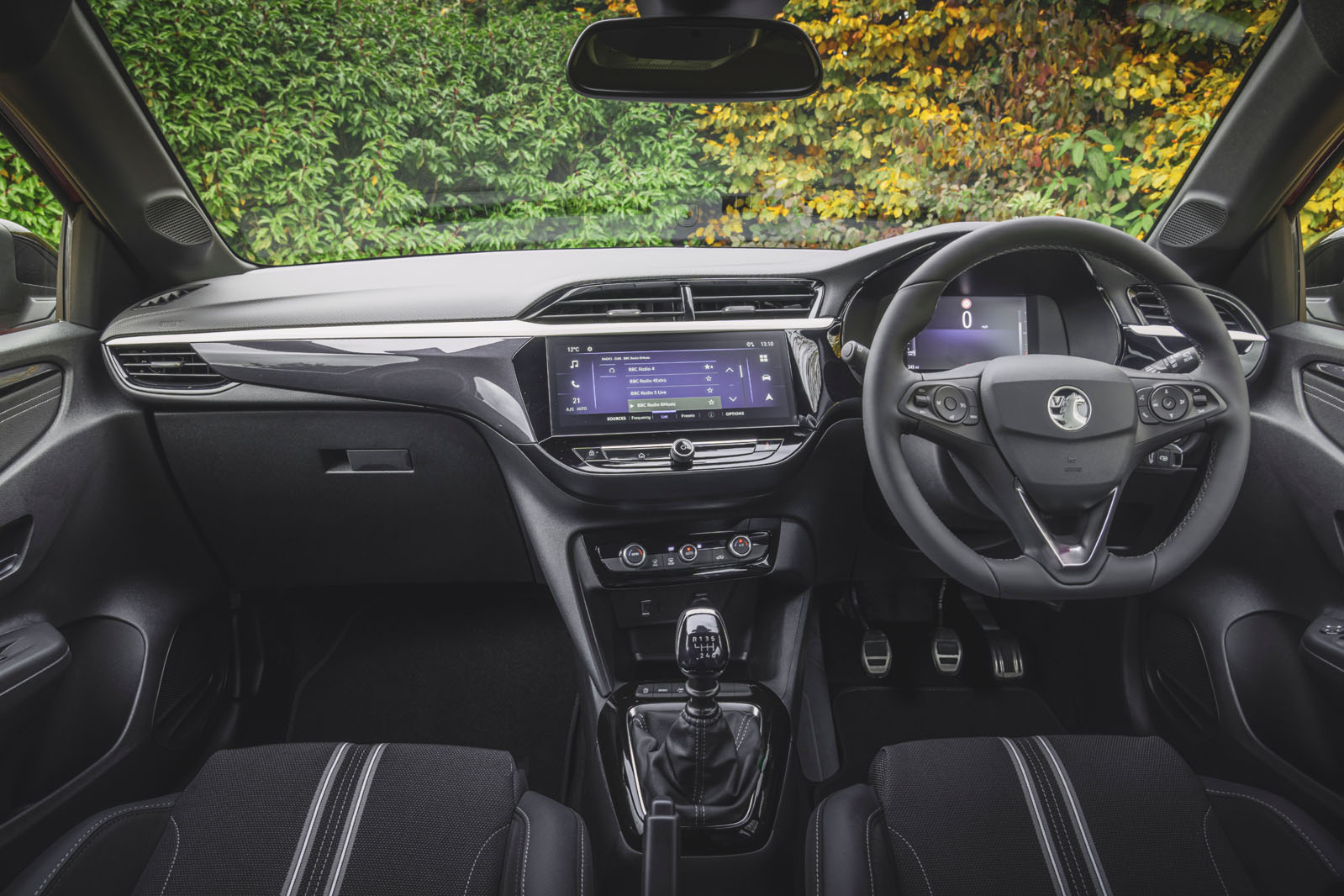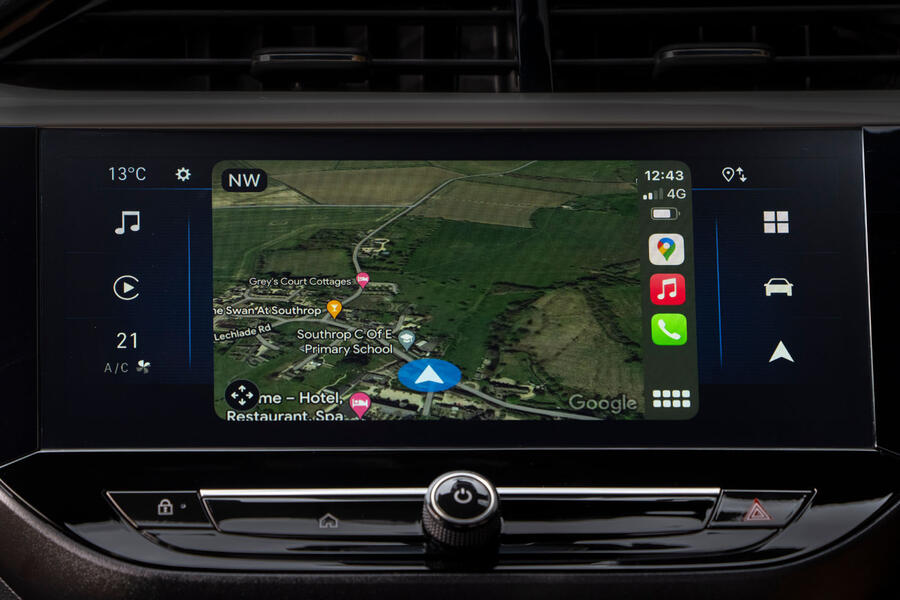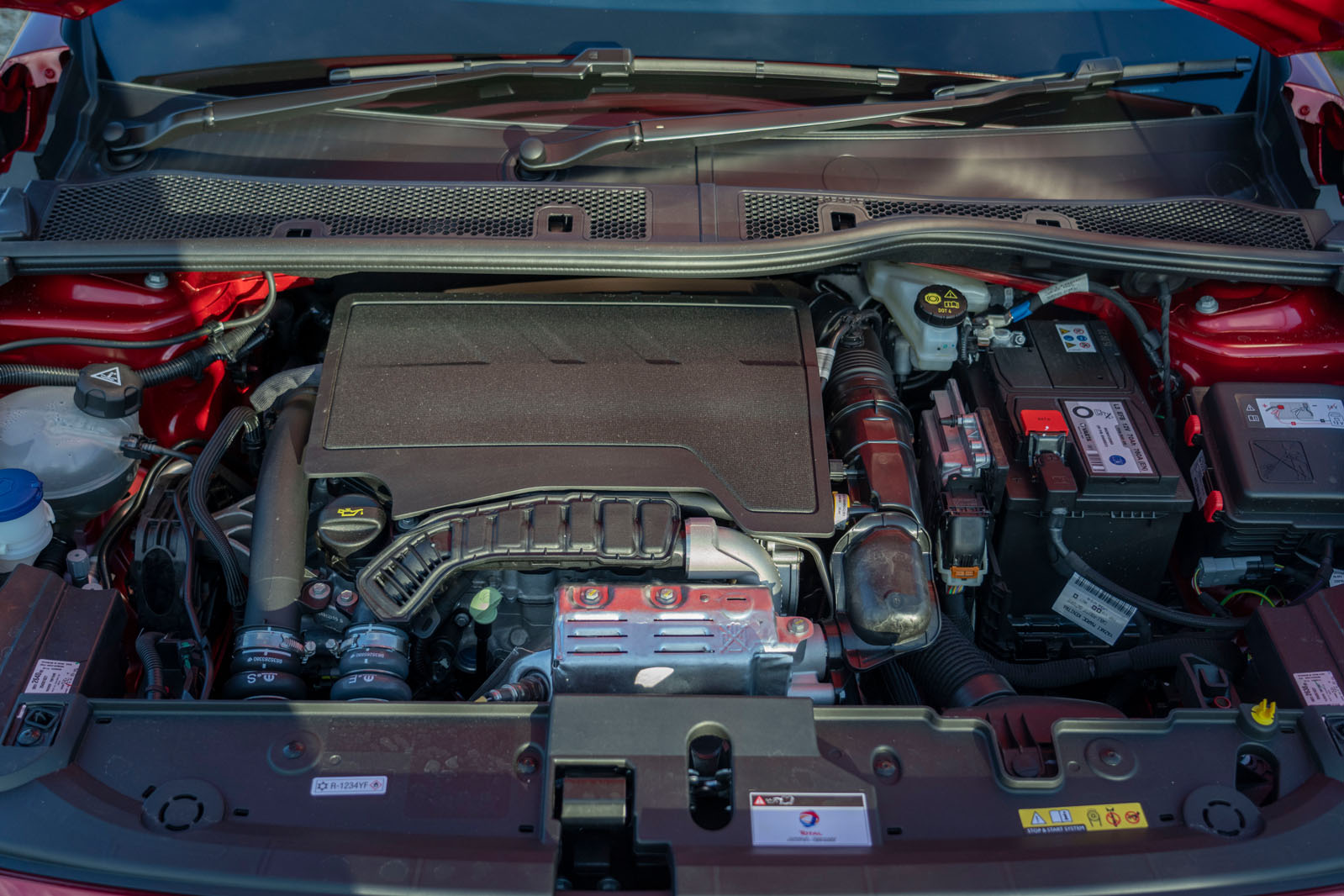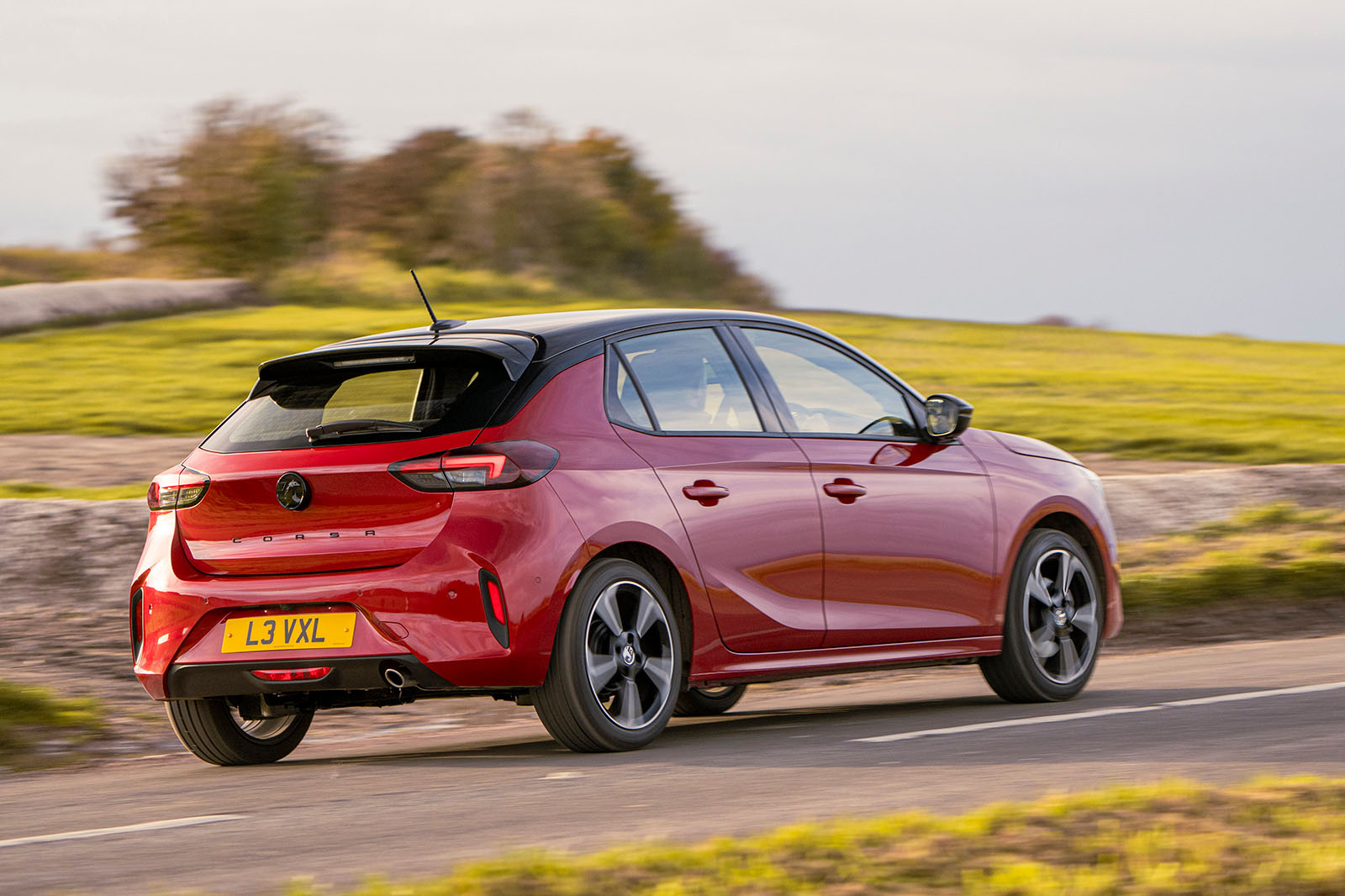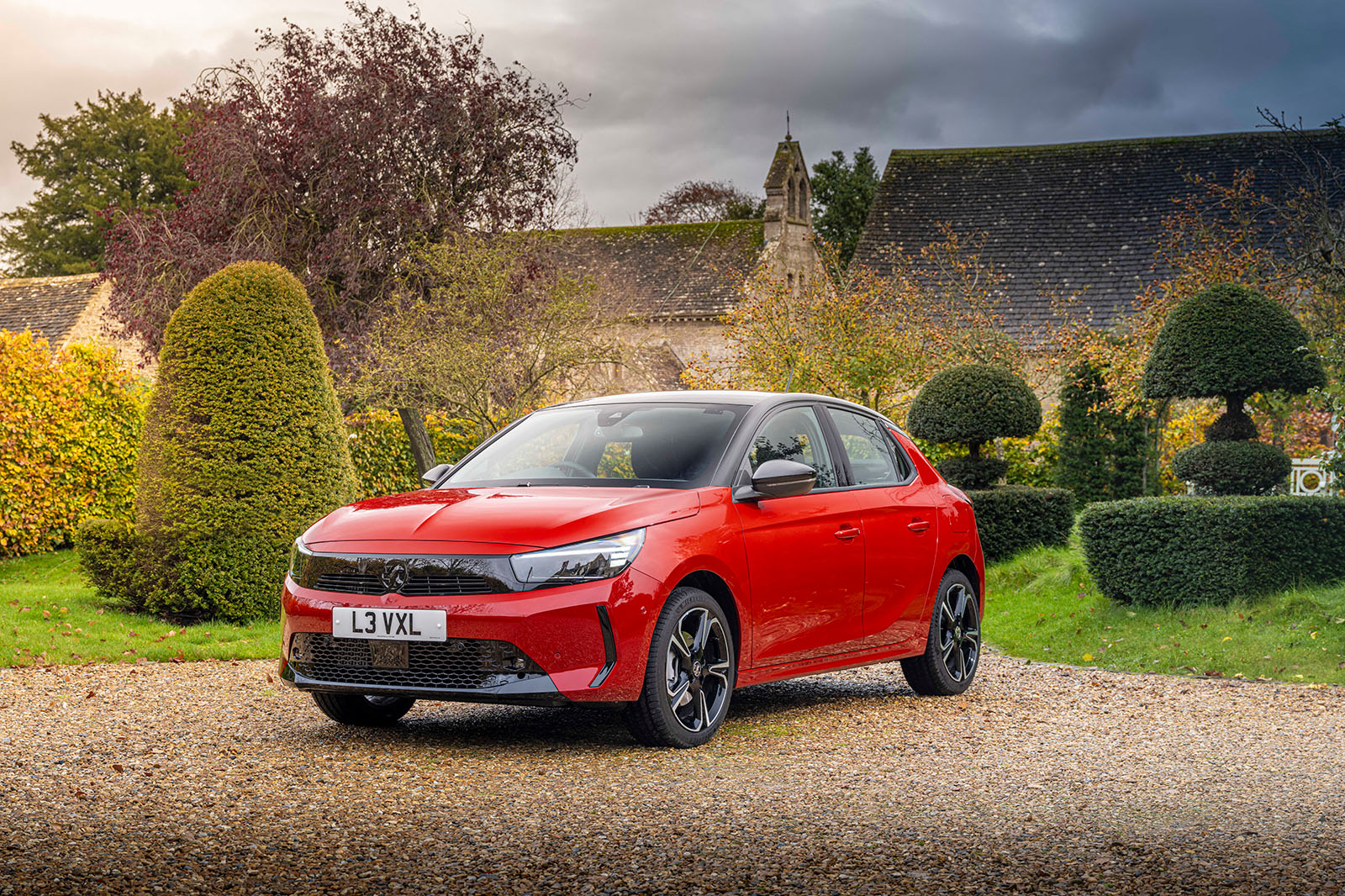In persistent rain, our 99bhp Vauxhall Corsa test car battled through a shortage of traction off the line to hit 60mph in 11.2sec. In similarly adverse conditions last year, however, a 94bhp Volkswagen Polo with smaller, 15in wheels and 185-section tyres was able to hit 60mph from rest half a second quicker. A respectable but not outstanding standard, then.
The Corsa’s eight-speed automatic transmission made getting the car away from rest trickier than in the manual Polo, and was a contributing factor in its slower 0-60mph time. But it doesn’t quite explain why a lighter car with greater power and torque reserves and more intermediate gear ratios to pull on was then 4.1sec slower to 100mph.
The Corsa’s healthy provision of torque does at least mean that, subjectively, it isn’t short of on-road punch. It doesn’t accelerate in quite as linear a fashion as some rival modern turbo superminis, and it can come across as a touch boosty in its power delivery through the lower middle of the rev range. But there’s a likeable pluckiness about the way it picks up pace and then revs that won’t leave you feeling grossly short-changed either for performance in town or at speed on the motorway.
Our test numbers confirmed as much: the car’s 11.5sec 30-70mph through-the-gears time was only 0.3sec behind that of the Polo. And while the 1.2-litre motor’s power delivery can start to feel strained as you approach the very top of its rev range, flexibility is nonetheless competitive in relation to the wider class. Locked in fourth gear – our measure of an engine’s flexibility – the same 30-70mph run took 12.7sec, versus 14.8sec in the 123bhp Ford Fiesta we road tested in 2017. That showing is flattered by the fitment of an eight-speed automatic gearbox (with a shorter fourth gear than, say, a six-speed manual might have had) to the Corsa, of course, but it’s a strong one all the same.
The eight-speed automatic ’box itself is competent enough, although our testers agreed that Vauxhall’s six-speed manual ought to be preferable to all but the laziest and most disinterested of drivers. Shifts are delivered smoothly, but the transmission can dawdle at times, and brake pedal feel is somewhat over-assisted and mushy-feeling. Take the manual instead and shift quality is good, and brake pedal response better.
That said, step-off in the auto is generally smooth and it’s perfectly willing to accommodate manual shifts via the steering-column-mounted paddles, although not always with as much haste as you might like or hope for.
Vauxhall Corsa assisted driving notes
All Corsa models come with a suite of driver assistance systems that include speed limit sign recognition, a lane departure warning system, forward collision alert, AEB crash mitigation with pedestrian detection, plus cruise control with a manual speed limiter. Mid-spec GS cars add blindspot monitoring, while top-level models get a more sophisticated AEB system, extended traffic sign recognition, and both a lane keeping assist system and adaptive cruise control for automatic-gearbox models.
The systems aren’t groundbreaking but they work reliably. The lane departure warning system feels well calibrated for UK motorways. The manner in which it steps in to guide you back into your lane is gentle and it hands back control in a smooth fashion.
Elsewhere, the adaptive cruise control is adept at reading changes in traffic speed and will adjust the speed of the car in a usefully progressive fashion. The absence of a chorus of warning chimes, beeps and bongs in the car more widely (speeding reminder buzzers, which will be mandatory from June 2024, haven't yet been added to the car) is also welcome.


